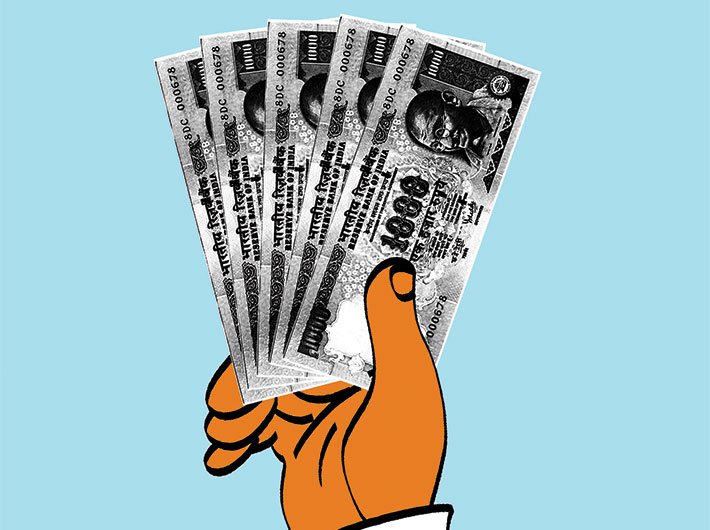“It could have been done in a phase wise manner. It could have been done without so much shock and surprise”
Prime minister Narendra Modi’s address to the nation on Tuesday evening caught everyone, not just black money hoarders, by surprise. Minutes after the announcement, the news about Rs 500 and Rs 1,000 currency notes loosing validity from November 9 went viral. It was being discussed everywhere, at the airport, roadside tea stalls, streets, market and ATMs. The move is being widely appreciated for it is being seen as a master stroke to curb black money, and hence black economy.
Critics including economists and opposition parties, however, have watered down government’s optimism about curbing black money. “It is not a bad thing. But it is not going to have a big bang impact,” said professor Jayati Ghosh, centre for economic studies and planning, Jawaharlal Nehru University.
“Most black money is not held in currency. The rich deal in financial assets, property, or they send money abroad. The cash is held by the smaller players: traders, other smaller businessmen.”
“Moreover there is high circulation of cash in the informal economy. How about those without a bank account or simply not having access to banking services? How will they exchange old currency notes? It is a massive attack on the payment system,” said professor Ghosh.
“It could have been done in a phase wise manner. It could have been done without so much shock and surprise,” she added.
According to Rajat Kathuria, director and chief executive, Indian Council for Research on International Economic Relations (ICRIER), it is one of the initial steps which has been taken by the government and is expected to have a greater impact. Its impact, however, will eventually depend on institutionalised electronic transactions. The dependence on cash has to be reduced eventually.
With the Jan-Dhan Yojana and DBT, the government is creating the infrastructure required for electronic banking. “Still we are generations away from being a cashless society,” Kathuria said. Besides, the government has to rationalise taxes and duties to incentivise compliance, he said.
In terms of its effectiveness, he said it will be difficult to monitor wealth held in the form of assets. But whenever it comes into the market it might become easier to track it.
Demonetising high currency notes is one of the ways to deal with black economy, as was done in 1978 by Moraji Desai government. The government had demonetised currency notes of Rs 1000, Rs 5,000 and Rs 10,000 denominations.
It didn’t have a significant impact on black money, former finance minister P Chidambaram said in a press conference on Wednesday.
According to a Quint report, IG Patel, the RBI governor in 1978, wrote in his book, ‘Glimpses of Indian Economic Policy: an Insider’s View’, that when the then finance minister HM Patel told him about the step, he asserted that steps like these rarely have striking results. “He added that most people in possession of black money rarely keep their ill-gotten earnings in the form of currency for long. Thinking that black money is stashed away under mattresses or suitcases is naive,” Quint reported.
“[The demonetisation move is] poorly planned and not thought through, this move means harassment for millions not connected to the banking system,” tweeted Sitaram Yechury of Communist Party of India (Marxist). Today's announcement neither addresses the major sources of black money abroad nor those invested in property, gold and such instruments, he said in another tweet.
Congress vice president Rahul Gandhi tweeted, “Once again Mr Modi shows hw little he cares abt ordinary ppl of this country-farmers, small shopkeepers, housewives-all thrown into utter chaos.” “While the real culprits sit tight on their black money stashed away abroad or in bullion/ real estate. Well done Mr Modi.”

